1. Leaving Your Generator Running All Night
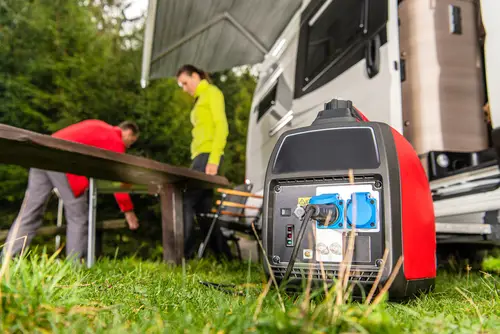
Few things kill the peace of a campground faster than the constant drone of a generator. While it’s understandable you might need it for power, running it all night makes your neighbors feel like they’re camping next to a lawnmower. Most campgrounds have quiet hours posted, and ignoring them comes across as inconsiderate. RVers looking for rest will think twice about parking near you next time.
Beyond noise, generators produce fumes that can drift into others’ campsites. Breathing exhaust while trying to enjoy a campfire or meal isn’t fun for anyone. If you truly need overnight power, consider investing in solar panels or a battery bank. That way you stay powered up without ruining the vibe for everyone else.
2. Taking Up Extra Campsite Space
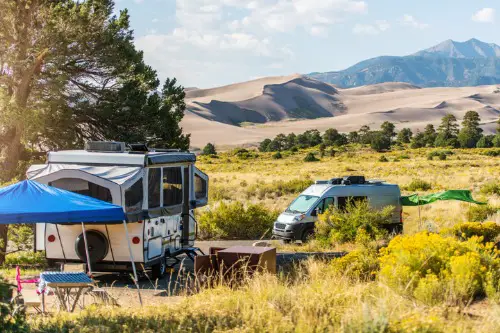
Every campsite comes with defined boundaries, and they’re there for a reason. Sprawling across two sites with extra furniture, vehicles, or gear makes it seem like you’re hogging shared space. This can create tension, especially in busy campgrounds where spots are limited. Other RVers will likely avoid parking near someone who doesn’t respect boundaries.
It’s not just about courtesy—it’s also about safety. Blocking access roads or creeping into a neighbor’s site can make it harder for others to maneuver their rigs. Campsites are designed to handle a certain load, and exceeding that puts strain on the system. Staying within your space shows you understand the unspoken rules of campground life.
3. Dumping Tanks Improperly
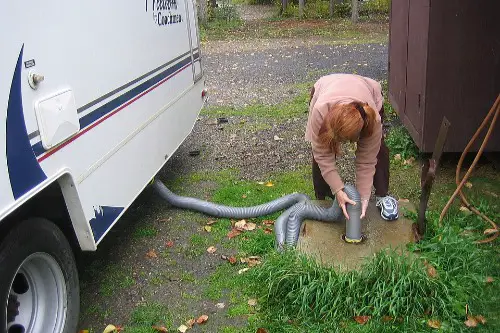
Emptying your black or gray water tank is a part of RV living, but how you do it matters. Dumping outside of designated stations or leaving spills behind creates unsanitary conditions. Not only is it gross, but it also risks contaminating the environment and spreading illness. RVers who see that kind of carelessness will steer clear.
Even when using proper dump stations, rushing through the process often leaves a mess for the next person. Taking a few extra minutes to rinse and clean up shows respect for the community. It’s also good etiquette to let others take their turn without cutting in line. Clean, efficient tank management goes a long way in keeping fellow travelers on your side.
4. Ignoring Quiet Hours

Quiet hours exist so everyone can rest, but some RVers act like they don’t apply to them. Playing loud music, shouting, or even revving engines late at night can turn a relaxing stay into a nightmare. RV parks are often full of families and retirees who value sleep. Breaking this rule quickly earns you a bad reputation.
Noise isn’t just disruptive—it can also cause safety issues. Overtired drivers the next morning may not handle the road well. Plus, repeat offenders may even find themselves asked to leave by campground staff. Respecting quiet hours is one of the simplest ways to earn goodwill from neighbors.
5. Walking Through Other People’s Campsites

Cutting across someone else’s campsite may not seem like a big deal, but it’s a major pet peeve. Those spots are essentially temporary front yards, and barging through them feels invasive. Most RVers value their little patch of privacy, especially in crowded campgrounds. If you make a habit of shortcutting, don’t be surprised when others keep their distance.
It’s not just about personal space—it’s also a safety concern. Kids, pets, or campfires might be in your path, creating hazards you didn’t expect. Taking a longer route around keeps everyone comfortable and safe. Respecting invisible boundaries helps maintain a friendly camping environment.
6. Not Controlling Pets

Pets are part of RV life, but letting them roam free isn’t fair to others. An unleashed dog can scare children, annoy neighbors, or even get into fights with other pets. Constant barking is another issue that can make nearby RVers miserable. Failing to manage your furry friends makes it harder for others to relax.
Responsible pet owners keep leashes on and clean up after their animals. That way, everyone can enjoy their stay without stepping in surprises or hearing endless yapping. Some campgrounds even have dedicated dog runs to help with exercise and socialization. Using these amenities shows you respect both your pet and your neighbors.
7. Hogging Shared Amenities

Campgrounds often provide shared resources like laundry rooms, showers, and picnic shelters. Taking up these spaces for hours at a time prevents others from using them. Whether it’s leaving clothes in a washer or setting up camp in the communal grill area, hogging resources breeds resentment. Other RVers may quietly avoid interacting with someone who doesn’t share.
Being mindful means setting a timer for laundry or cleaning up after your meal quickly. It also helps to remember that shared amenities aren’t private extensions of your RV. Everyone pays for access, so fair use is key to keeping things running smoothly. Good campground etiquette makes you someone others are happy to camp near.
8. Speeding Through the Campground

Campgrounds usually post low speed limits for a reason. Driving too fast not only kicks up dust but also puts kids, pets, and pedestrians at risk. Even if you’re confident in your driving, others might not feel safe around you. RVers with families will think twice before staying near a speedster.
Taking it slow also helps protect your own rig. Narrow roads, tight turns, and hidden obstacles can cause costly damage if you’re not careful. Slowing down shows respect for the shared space and the people using it. Plus, it makes for a calmer, more enjoyable campground environment overall.
9. Leaving Lights On All Night
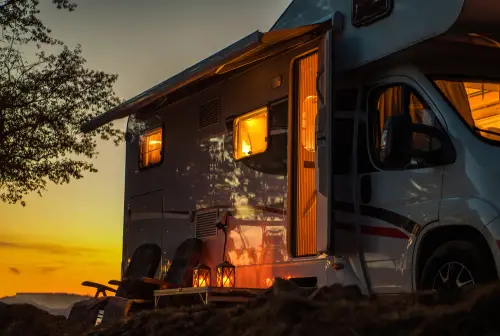
Outdoor lights can be helpful, but leaving them blazing all night is inconsiderate. Bright floodlights or string lights shining into someone else’s rig make it hard for them to sleep. Many RVers seek out dark skies for stargazing, and your campsite can ruin that experience. Small details like this make a big difference in how others perceive you.
Using motion-sensor lights or dimmer options can strike a balance between safety and courtesy. Some RVers prefer to turn everything off once they’re inside for the night. Keeping lighting subtle shows that you’re mindful of the shared environment. Darkness is part of the camping experience, and your neighbors will thank you for preserving it.
10. Leaving Trash Around
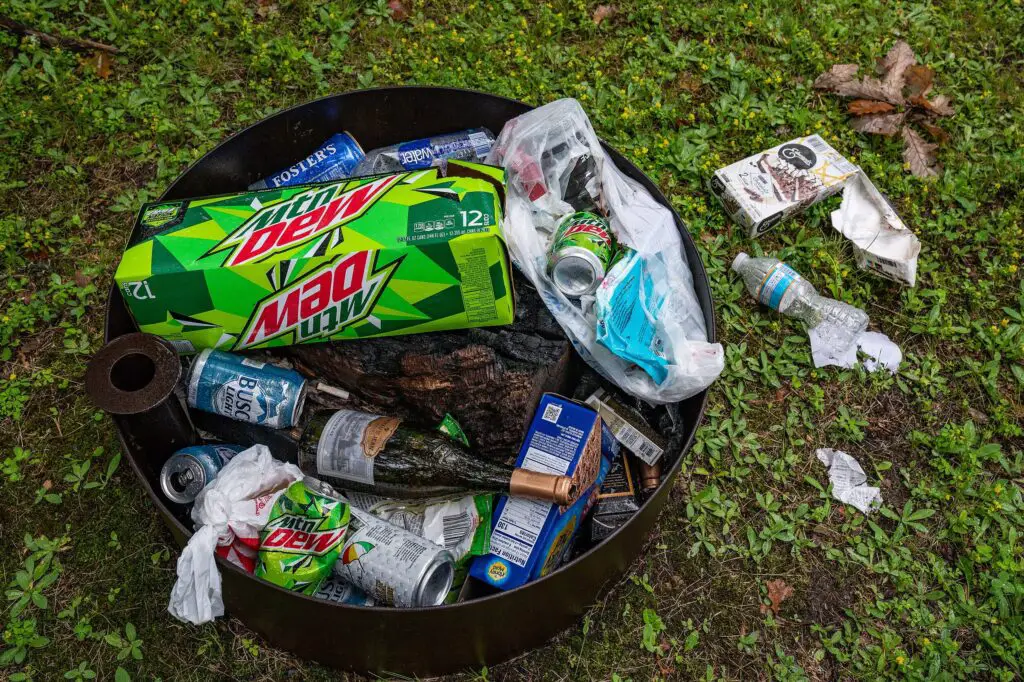
Littering is one of the fastest ways to lose respect in a campground. Trash not only looks bad but also attracts animals like raccoons and bears. Once wildlife becomes reliant on human food, it can lead to dangerous encounters. RVers who care about nature don’t want to camp near someone who leaves a mess.
Most campgrounds provide plenty of trash and recycling bins, so there’s no excuse. If bins are full, it’s better to store waste securely until they’re emptied. Leaving bags outside your rig overnight is an open invitation to critters. A clean site helps everyone enjoy the outdoors without unnecessary hazards.
11. Being Unfriendly or Rude
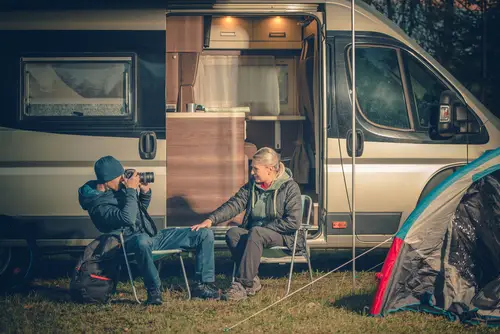
RV communities thrive on friendliness, but some people act like they’re above it. Refusing to wave back, giving curt answers, or snapping at neighbors makes you seem unapproachable. RVers often share tips, tools, and even meals, so closing yourself off limits those connections. Over time, people will simply stop trying to engage with you.
Being polite doesn’t mean you have to be best friends with everyone. A simple hello or a quick chat about the weather can go a long way. Respecting personal space while still being approachable creates balance. RV life is built on community, and small gestures help keep that spirit alive.
12. Ignoring Check-In and Check-Out Times

Campgrounds rely on check-in and check-out schedules to keep things organized. Arriving hours early or leaving well past your time throws off the system. It can also leave other RVers waiting around when they should be settling in. If you consistently ignore these rules, campground staff—and your neighbors—won’t be thrilled.
Respecting schedules makes life smoother for everyone. If you know you’ll be late or need extra time, a quick call to the office can often work things out. Communication shows that you care about how your actions affect others. Stick to the schedule, and you’ll earn a reputation as a considerate traveler.
This post 12 Travel Habits That Make Other RVers Avoid You was first published on Greenhouse Black.
